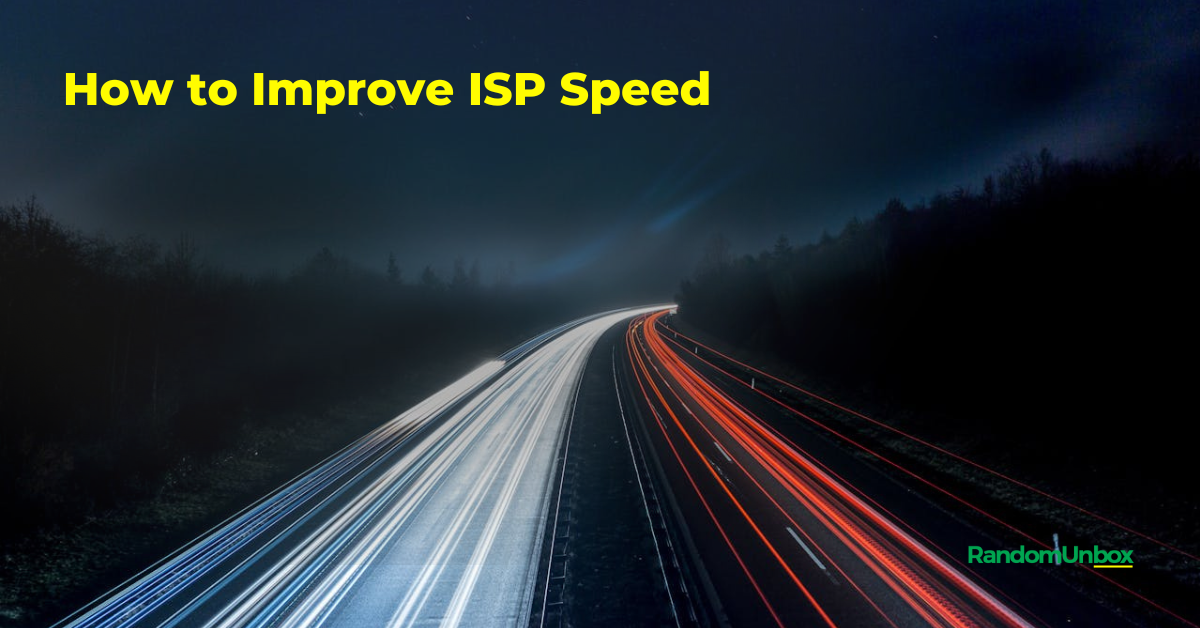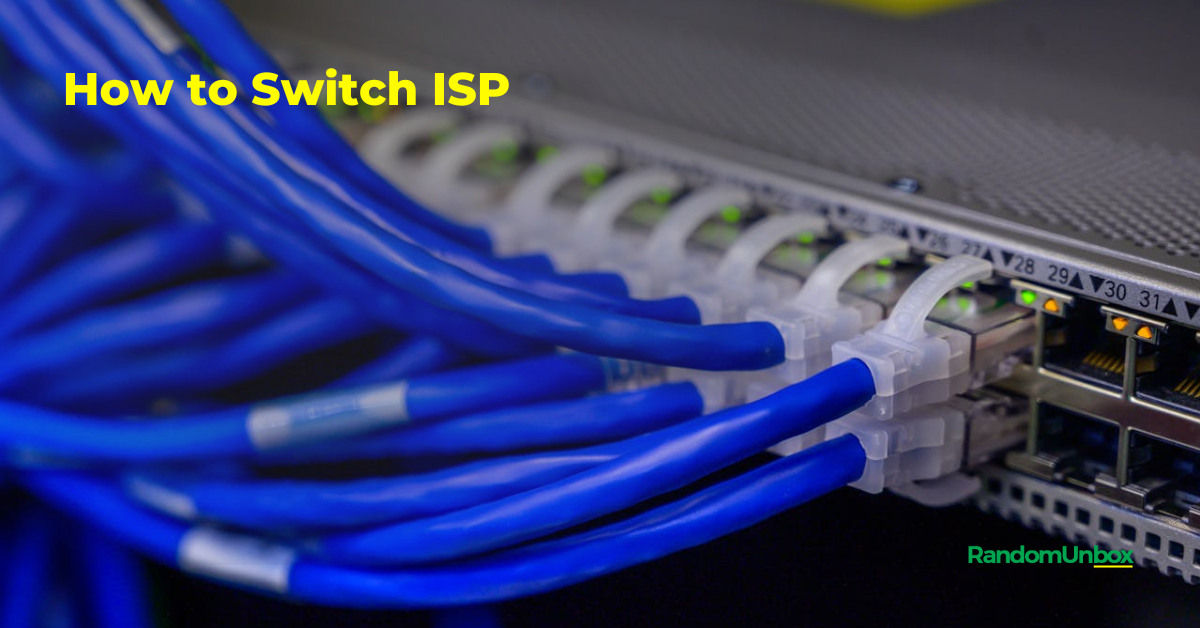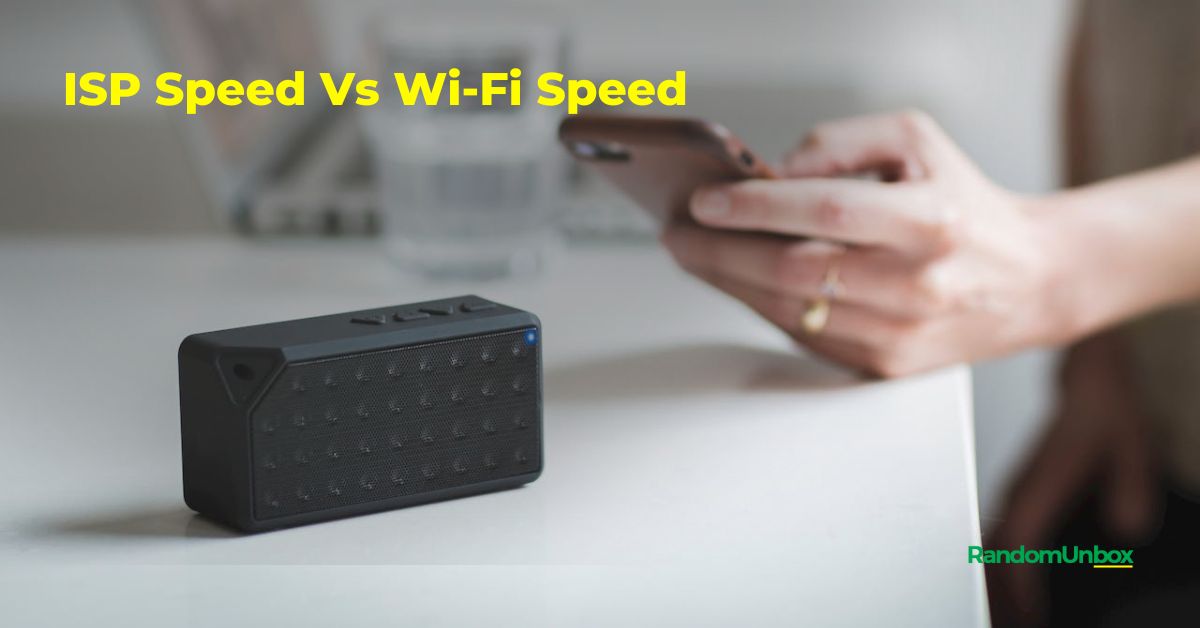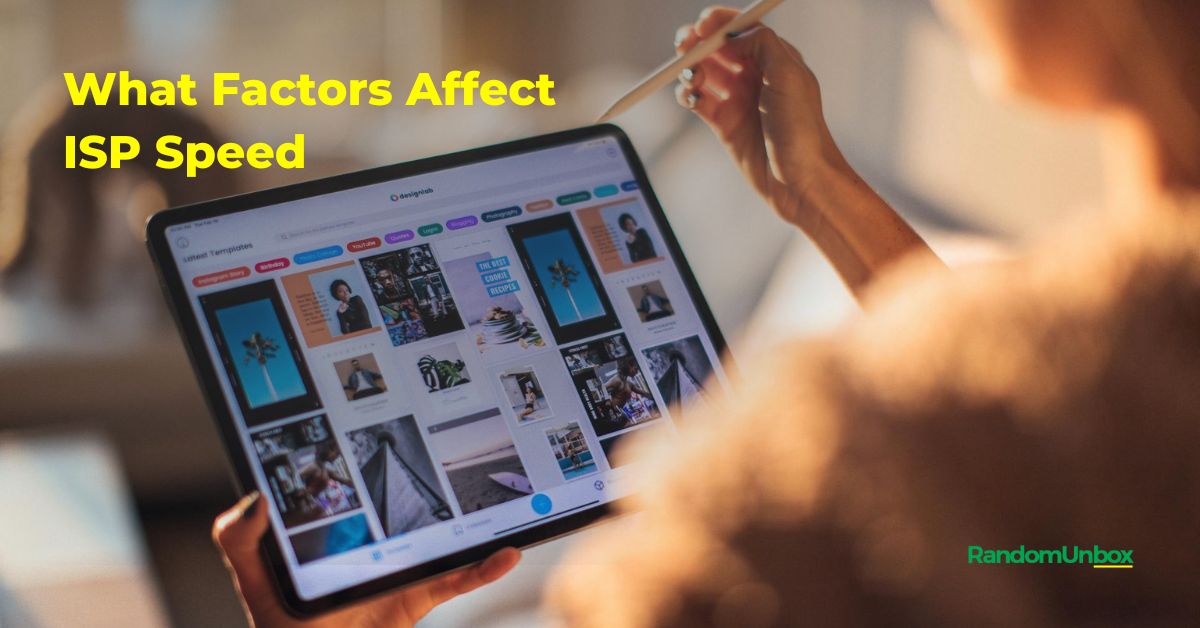Choosing the right internet service provider (ISP) can feel overwhelming, especially when navigating the complexities of internet speeds. While a minimum download speed of 10 Mbps might suffice for basic web browsing and emailing, higher speeds become essential for activities like streaming high-definition content or online gaming.
But what truly defines a good internet speed for your unique needs? This guide delves into the factors influencing internet speed and how to optimize your online experience.
By exploring the intricacies of ISP speeds and their impact, we can unlock a seamless and efficient digital life.
Simplify Internet Speed: Download, Upload, and Measurement
Understanding internet speed is crucial for a seamless online experience. This section delves into the key aspects of internet speed, including download and upload, and how to measure it effectively.
Download vs. Upload Speed: Understanding the Difference
- Download speed refers to the rate at which data is transferred from the internet to your device. This is crucial for activities like downloading files, streaming videos, and browsing websites. It’s measured in Mbps (megabits per second), with higher Mbps indicating faster download times.
- Upload speed describes the rate at which data is transferred from your device to the internet. It’s essential for activities like video conferencing, uploading photos, and online gaming. Similar to download speed, it’s measured in Mbps, with higher Mbps enabling faster uploads.
In simple terms: Imagine a highway. Download speed is like the traffic flow bringing things to you (files, videos), while upload speed is like the traffic flow sending things out (photos, video calls).
Measuring Your Internet Speed: Simple Steps
Knowing your internet speed allows you to assess if it aligns with your needs. Here’s how to measure it:
1. Use Online Speed Test Tools: Several websites and mobile applications offer free internet speed tests. Popular options include Speedtest by Ookla, Google Fiber Speed Test, and Fast.com from Netflix.
2. Run the Test: Visit the chosen website or launch the app and follow the on-screen instructions. The test typically takes a few seconds to complete.
3. Interpret the Results: The test will display your download and upload speed in Mbps. Compare these values to the recommended speeds for your preferred online activities (e.g., streaming, gaming) to determine if your internet connection is adequate.
By understanding download and upload speed and utilizing online tools, you can effectively assess your internet connection and ensure a smooth online experience.
Factors Influencing Your Ideal Internet Speed: Understanding Your Needs
A. Number of Users:
Household size and the number of connected devices significantly impact your required internet speed. With multiple devices streaming, gaming, and browsing simultaneously, the available bandwidth needs to be sufficient to avoid congestion and slowdowns.
B. Online Activities:
Different online activities have varying bandwidth requirements:
- Low Bandwidth: Web browsing, social media, email (typically up to 10 Mbps)
- Medium Bandwidth: Video conferencing, HD streaming (typically 25-50 Mbps)
- High Bandwidth: Online gaming, 4K streaming, large file downloads (typically 50+ Mbps)
Choosing the right speed tier depends on your typical online activities and the number of users in your household. For instance, a single user primarily browsing the web may opt for a lower tier, while a household with gamers and frequent streamers might require a higher bandwidth plan.
C. Future Needs:
Consider future internet usage trends when selecting a plan. The proliferation of smart home devices and the ever-increasing demand for high-quality streaming continue to drive bandwidth requirements upwards. Selecting a plan with some headroom for growth can ensure you’re prepared for your evolving internet needs.
By understanding these factors and analyzing your specific usage patterns, you can make an informed decision when choosing an internet service provider and plan that caters to your online activities and future needs.
The Critical Role of Download Speed in Your Digital Experience
Download speed is a fundamental factor influencing how quickly you access information online. It determines the rate at which data travels from the internet to your device, directly impacting your browsing experience and online activities.
Understanding download speed empowers you to make informed decisions when choosing an internet plan that aligns with your needs.
The Impact of Download Speed:
A fast download speed is crucial for:
- Streaming high-quality video content: Whether watching movies, live streams, or video calls, a faster download speed ensures smooth playback without buffering or lagging.
- Downloading large files: Downloading software updates, games, or sizeable documents efficiently becomes possible with robust download speeds.
- Seamless web browsing: Faster download speeds translate to quicker loading times for websites, images, and videos, enhancing your overall browsing experience.
Choosing the right download speed is vital for optimal internet performance. Internet service providers (ISPs) often advertise download speeds prominently, highlighting their ability to deliver quicker access to online content.
Remember, the key to a seamless online experience lies in matching your download speed needs to your intended usage.
This table summarizes the impact of download speeds on various online activities:
| Activity | Recommended Download Speed |
|---|---|
| Streaming HD video | 25 Mbps or higher |
| Downloading large files | 50 Mbps or higher |
| Basic web browsing | 10 Mbps or higher |
The Critical Role of Download Speed in Your Digital Experience
Understanding download speed empowers you to make informed decisions when choosing an internet plan that aligns with your needs.
The Impact of Download Speed:
A fast download speed is crucial for:
- Streaming high-quality video content: Whether watching movies, live streams, or video calls, a faster download speed ensures smooth playback without buffering or lagging.
- Downloading large files: Downloading software updates, games, or sizeable documents efficiently becomes possible with robust download speeds.
- Seamless web browsing: Faster download speeds translate to quicker loading times for websites, images, and videos, enhancing your overall browsing experience.
Choosing the right download speed is vital for optimal internet performance. Internet service providers (ISPs) often advertise download speeds prominently, highlighting their ability to deliver quicker access to online content.
Remember, the key to a seamless online experience lies in matching your download speed needs to your intended usage.
This table summarizes the impact of download speeds on various online activities:
| Activity | Recommended Download Speed |
|---|---|
| Streaming HD video | 25 Mbps or higher |
| Downloading large files | 50 Mbps or higher |
| Basic web browsing | 10 Mbps or higher |
By considering these factors, you can ensure a smooth and efficient online experience tailored to your specific needs.
| Online Activity | Importance of Download Speed |
|---|---|
| Video Streaming | Ensures smooth playback |
| Downloading Large Files | Speeds up file transfers |
| Online Gaming | Reduces latency issues |
Streaming and Gaming
For buffer-free streaming of video content, a fiber-optic connection reigns supreme. Its superior speed and reliability ensure uninterrupted enjoyment of your favorite shows, movies, and online entertainment.
Gaming:
For gamers seeking the ultimate experience, the recommended download speed varies depending on the desired level of immersion. ISPs (Internet Service Providers) typically suggest minimum speeds ranging from 25 Mbps to over 300 Mbps. However, for truly seamless gameplay with high-quality graphics and low latency (response time), consider high-speed internet plans exceeding 500 Mbps, offered by leading providers like Frontier Communications and Verizon Fios. These plans can elevate your gaming experience to new heights.
Productivity and Efficiency:
Swift access to digital resources plays a crucial role in boosting online productivity and efficiency. Adequate download speed is essential for smooth web browsing, streaming content, video conferencing, file transfers, and utilizing cloud-based services.
The Impact of Slow Download Speeds:
Insufficient download speed can lead to frustrating delays, buffering, and disruptions, ultimately impacting your work efficiency and overall online experience. To combat these issues, choose an ISP that offers a reliable download speed of at least 25 Mbps. This ensures quick access to online resources and a smoother browsing experience.
A Glimpse into the Importance of Download Speeds:
The table below provides a quick overview of how download speed influences various online activities:
| Activity | Recommended Download Speed | Impact of Slow Speed |
|---|---|---|
| Web Browsing | 25 Mbps or higher | Slow loading times, lagging websites |
| Streaming Video | 25 Mbps or higher (HD) | Buffering, reduced video quality |
| Video Conferencing | 10 Mbps (upload and download) | Poor video and audio quality, dropped connections |
| File Transfers | 25 Mbps or higher | Slow transfer times, affecting productivity |
| Cloud-Based Services | 25 Mbps or higher | Delays in accessing and utilizing cloud applications |
By understanding the significance of download speeds and choosing the right connection, you can unlock a more efficient, productive, and enjoyable online experience, whether you’re streaming your favorite show, conquering virtual worlds, or simply navigating the web.
The table below highlights the importance of download speed in various online activities:
| Online Activity | Impact of Download Speed |
|---|---|
| Web Browsing | Quick access to websites |
| Streaming Content | Seamless playback of videos |
| Video Conferencing | Clear and uninterrupted virtual meetings |
| File Transfers | Fast sharing of documents and data |
| Cloud-Based Services | Smooth utilization of online tools and resources |
Significance of Upload Speed
While download speed often receives the spotlight, upload speed plays an equally crucial role in your internet experience. It determines how quickly data travels from your device to the internet, impacting various online activities.
Here’s why upload speed matters:
- Enhanced Efficiency: A strong upload speed ensures your internet connection can handle tasks like video conferencing and uploading large files seamlessly and without delays.
- Uninterrupted Enjoyment: Fast upload speeds, in conjunction with good download speeds, contribute to a smooth online experience. This translates to lag-free online gaming and speedy access to cloud storage.
- Flawless Live Streaming: For activities like live streaming, where large amounts of data need to be uploaded in real-time, higher upload speeds are essential. This helps maintain video quality and avoid buffering interruptions.
By understanding the significance of upload speed, you can ensure a more efficient and enjoyable online experience.
Wi-Fi Speed Considerations
Understanding your Wi-Fi technology is key to maximizing your internet speed and performance. Here are some crucial factors to consider:
- Dual-band and tri-band routers: These routers offer more bandwidth, allowing multiple devices to connect simultaneously without experiencing slowdowns. This is ideal for modern homes with numerous connected devices.
- Beamforming and MU-MIMO: These features focus Wi-Fi signals towards connected devices, resulting in faster and more reliable connections for everyone in your household, regardless of their location.
- Wi-Fi 6: This latest Wi-Fi standard offers significant improvements in speed and efficiency, especially when handling multiple devices simultaneously. Upgrading to a Wi-Fi 6 router can significantly enhance your network performance.
- Fast gigabit routers and modems: Utilizing high-speed equipment ensures your network can handle the full potential of your internet plan. This translates to faster browsing, smoother streaming, and lag-free gaming.
- Strategic router placement: Positioning your router in a central location with minimal obstructions can significantly improve signal strength and overall Wi-Fi performance throughout your home.
By considering these factors and implementing the appropriate solutions, you can optimize your Wi-Fi network for a seamless and enjoyable connected experience.
Recommended ISP Speeds: Tailoring Your Plan to Your Needs
A. General Recommendations:
Choosing the right internet service provider (ISP) plan depends on how many people use the internet in your household and the activities you engage in online. Here’s a general guide:
Table: Recommended ISP Speeds for Different User Scenarios
| User Scenario | Recommended Download Speed (Mbps) | Recommended Upload Speed (Mbps) |
|---|---|---|
| Single User (web browsing, email, social media) | 25-50 | 5-10 |
| Family of Four (multiple devices streaming, video calls) | 50-100 | 10-25 |
| Online Gamers (competitive gaming, live streaming) | 100+ | 25+ |
B. Individualized Needs:
These recommendations are starting points. It’s crucial to evaluate your individual needs and usage patterns to determine the ideal internet speed for your household. Consider:
- Number of users: How many people will be using the internet simultaneously?
- Online activities: Do you primarily browse the web, stream videos, or play online games?
- Data usage: How much data do you typically use each month?
Research available ISP plans in your area and compare download and upload speeds, data caps, and pricing. By understanding your specific needs, you can choose an ISP plan that provides a smooth and enjoyable online experience for everyone in your household.
Additional Considerations:
A. Latency:
What is it? Latency refers to the time it takes for data to travel between your device and the internet server you’re accessing.
How does it impact you? For activities like online gaming and video conferencing, low latency is crucial. High latency can cause delays, lags, and disruptions that hinder your experience.
Tip: When choosing an internet plan, consider prioritizing low latency alongside good download and upload speeds for activities that require real-time responsiveness.
B. Data Caps:
What are they? Data caps are limits set by internet service providers (ISPs) on the amount of data you can use in a month. Exceeding these caps can result in overage charges or throttled speeds (slowed down internet).
How do they affect you? Data caps can limit your internet usage, especially for activities like streaming high-definition content or downloading large files.
Recommendation: Analyze your average monthly data usage and choose an internet plan with a sufficient data allowance to avoid exceeding your limit and facing potential penalties.
Determining Optimal Connection Speed
Finding the optimal internet speed for your home requires understanding how you and your household use the internet. Different activities, like streaming, gaming, video conferencing, and downloading, have varying bandwidth demands. Here’s what you need to consider:
1. Analyze your internet usage:
- Who uses the internet in your home?
- What online activities do they engage in regularly?
- Do multiple users connect simultaneously?
Knowing your usage patterns helps you choose a plan that caters to everyone’s needs.
2. Understand download and upload speeds:
- Download speed determines how quickly you receive data (e.g., streaming, downloading files).
- Upload speed determines how quickly you send data (e.g., video calls, uploading photos).
Streaming and downloading large files require fast download speeds. Video conferencing benefits from symmetrical upload and download speeds (equal bandwidth in both directions).
3. Consider fiber-optic connections:
Fiber-optic internet offers superior performance with symmetrical upload and download speeds, making it ideal for households with diverse online activities.
Remember: Choosing the right internet speed ensures a smooth and uninterrupted online experience for everyone in your home.
Speed Vs. Usage
Before upgrading your internet plan, consider whether your current speed actually needs a boost. To make an informed decision, consider these key factors:
1. Evaluate Your Online Activities:
- Do you regularly stream high-definition video content?
- Do you participate in online gaming?
- Do you frequently host video conferences?
These activities require significant bandwidth and may benefit from a faster connection.
2. Count Your Connected Devices:
- How many devices, like smartphones, laptops, and smart TVs, connect to your internet simultaneously?
- Do multiple users rely on the internet at the same time?
More connected devices competing for bandwidth can slow down your internet, requiring a higher speed for optimal performance.
3. Watch for Performance Issues:
- Do you experience frequent buffering while streaming videos?
- Do web pages take a long time to load?
- Do you encounter frequent connection drops or delays?
These problems are often signs of insufficient internet speed and may warrant an upgrade.
Optimize Your Streaming Experience: Speed and Device Management
Streaming Quality:
- High-definition (HD) streaming: Aim for at least 5 Mbps for a smooth experience.
- 4K streaming and multiple devices: Consider higher speeds for optimal performance.
- Minimize buffering: Ensure sufficient bandwidth to avoid interruptions.
- Symmetrical fiber-optic networks: Offer enhanced streaming and overall performance due to equal upload and download speeds.
Multiple Device Connectivity:
- Growing number of connected devices: Homes are becoming increasingly “smart,” requiring robust internet connections.
- FCC recommendations:
- 12 Mbps for 2 devices
- 25 Mbps for 4 or more devices
- Heavy usage scenarios: Experts recommend a minimum of 100 Mbps for multiple devices streaming and downloading simultaneously.
- Future-proofing your network: With an average of 13.6 connected devices per person predicted by Cisco (US, 2023), higher speeds may be necessary in the near future.
Taking Action:
- Analyze your network usage: Understand the number and types of devices using your connection.
- Upgrade your internet plan: Consider higher speeds if your current plan struggles to handle your needs.
By understanding your internet needs and taking proactive steps, you can ensure a smooth streaming experience and seamless connectivity across all your devices.
Frequently Asked Questions
Is 400 Mbps Fast Internet?
400 Mbps is considered very fast internet. It provides excellent gaming performance, seamless 4K streaming, rapid upload/download speeds, and supports multiple household devices. This speed minimizes network congestion, ensuring reliable internet for demanding online activities.
Is 300 Mbps a Good Internet Speed?
At 300 Mbps, internet users can enjoy seamless 4K streaming, lag-free gaming, and crisp video conferencing. This speed supports multiple devices concurrently, making it ideal for smart homes, large file downloads, and high-quality virtual experiences.
Is 200 Mbps Good Internet Speed?
A download speed of 200 Mbps is impressive for most online activities, boasting efficient support for multiple devices without lag. It enables quick downloads, smooth video conferencing, and seamless streaming, making it a robust choice for modern internet needs.
Do I Need 1000 Mbps Internet?
For high-intensity activities like gaming, 4K streaming, and business operations involving large file transfers and video conferencing, 1000 Mbps internet ensures minimal gaming latency, seamless streaming quality, enhanced work productivity, and efficient connectivity across multiple household devices and users.
What speed do I need for streaming Netflix?
The minimum recommended speed for streaming Netflix depends on the video quality you want:
- Standard Definition (SD): 3 Mbps
- High Definition (HD): 5 Mbps
- Ultra HD (4K): 15 Mbps
However, these are just minimums. For a smoother streaming experience, especially if you have multiple devices connected to your network, consider a higher speed plan.
How can I improve my Wi-Fi signal strength?
Here are some tips for improving your Wi-Fi signal strength:
- Move your router to a central location: This will help ensure the signal reaches all areas of your home.
- Minimize interference: Avoid placing your router near electronic devices such as cordless phones, microwaves, and baby monitors.
- Upgrade your router: Newer routers often have better range and features.
- Consider a mesh network: This type of network uses multiple devices to create a blanket of Wi-Fi coverage throughout your home.
What are the different types of internet connections?
The most common types of internet connections include:
- Cable: Delivers internet access through coaxial cables similar to those used for cable TV.
- DSL: Uses existing telephone lines to deliver internet access.
- Fiber Optic: Delivers internet access through fiber optic cables, which offer the fastest and most reliable speeds.
- Fixed Wireless: Uses radio signals to deliver internet access, often in areas where cable and fiber optic are not available.
Conclusion
Recap: Choosing the right internet service provider (ISP) and plan can feel overwhelming. To ensure you receive optimal speeds for your needs, remember these key factors:
- Technology: Consider the type of connection available in your area, such as fiber optic, cable, or DSL. Each offers varying speed capabilities.
- Location: Proximity to your ISP’s infrastructure can impact speed. The farther you are, the higher the potential for signal degradation.
- Usage: Think about how many devices will be connected and what online activities you participate in (streaming, gaming, etc.).
- Budget: Compare available plans and choose one that meets your needs and budget.
Call to Action: By understanding these factors, you can effectively assess your internet usage needs and select the most suitable ISP and plan. Take control of your online experience!











